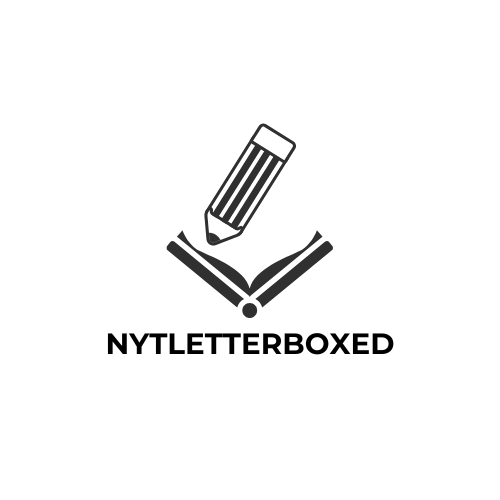
Technical Writing Job Description: Skills, Salary & Career Path Guide 2024
I’ve spent years working as a technical writer and understand firsthand what this dynamic role entails. Technical writing goes far beyond simply putting words on paper – it’s about transforming complex information into clear, user-friendly content that helps people solve problems.
As companies increasingly prioritize documentation and user experience, technical writers have become essential team members across industries. From software manuals and API documentation to standard operating procedures and training materials, we bridge the gap between technical experts and end users. Whether you’re considering a career switch or looking to hire a technical writer, understanding the core responsibilities and required skills is crucial for success in this growing field.
Key Takeaways
- Technical writers create clear documentation for products, services, and processes, serving as a bridge between technical experts and end users
- Key responsibilities include creating user manuals, API documentation, researching technical concepts, and collaborating with developers and engineers
- Essential skills combine strong writing abilities with technical knowledge, including proficiency in documentation tools, markup languages, and version control systems
- Career growth opportunities are strong with a 12% annual growth rate, offering paths from entry-level ($45-60K) to senior positions ($90-120K)
- Industry specializations like software development and healthcare can increase earning potential by 15-25%, with median salaries reaching $95,000
- Work environments are flexible, with 45% remote positions, 35% office-based, and 20% hybrid arrangements, typically following project-based structures
Technical Writing Job Description
A technical writer creates clear documentation for products, services or processes. Technical writers translate complex information into user-friendly content for specific audiences across various industries.
Key Responsibilities and Duties
- Create user manuals, installation guides, API documentation, release notes
- Research technical concepts through SME interviews, product testing, code review
- Analyze user needs to determine appropriate content structure format
- Edit existing documentation for accuracy, consistency, readability
- Develop style guides standards to maintain documentation quality
- Collaborate with developers, engineers, product managers on documentation plans
- Design visual aids like diagrams, screenshots, illustrations to support text
- Review analytics data to optimize documentation performance
- Manage documentation in content management systems
- Bachelor’s degree in technical writing, English, journalism or related field
- 3+ years of technical writing experience in software/technology industry
- Proficiency in documentation tools (MadCap Flare, RoboHelp, Confluence)
- Knowledge of markup languages (HTML, XML, Markdown)
- Strong writing skills with attention to grammar, style, consistency
- Ability to understand complex technical concepts quickly
- Experience with version control systems like Git
- Project management capabilities to handle multiple documentation projects
- Excellent communication skills for collaborating with technical teams
- Familiarity with user experience (UX) principles
Essential Technical Writing Skills
 Technical writing demands a specialized skill set that combines communication expertise with technical proficiency. These core competencies define success in the field.
Technical writing demands a specialized skill set that combines communication expertise with technical proficiency. These core competencies define success in the field.
Communication and Language Proficiency
Advanced writing abilities form the foundation of technical writing excellence. Strong grammar mastery ensures error-free documentation while clear sentence structure makes complex information accessible. Key language skills include:
- Writing concise explanations without technical jargon
- Adapting content for different audience levels (beginners intermediate experts)
- Using consistent terminology throughout documentation
- Implementing style guides Reuters AP Chicago Manual
- Editing content for clarity accuracy readability
Technical Knowledge and Research Abilities
Research capabilities enable accurate technical documentation creation. Essential technical competencies include:
- Understanding software development processes agile methodologies version control
- Reading interpreting technical specifications API documentation code
- Analyzing user requirements gathering feedback from subject matter experts
- Conducting thorough product research competitive analysis
- Testing procedures workflows to verify documentation accuracy
- Documentation platforms (MadCap Flare Adobe FrameMaker Confluence)
- Version control systems (Git GitHub BitBucket)
- Content management systems (WordPress Drupal)
- Visual design tools (Adobe Creative Suite Snagit Camtasia)
- Markup languages (HTML XML Markdown)
| Tool Category | Common Examples | Usage Percentage |
|---|---|---|
| Documentation | MadCap Flare | 45% |
| Version Control | Git | 78% |
| CMS | WordPress | 62% |
| Visual Design | Adobe Suite | 55% |
| Markup | HTML/XML | 83% |
Career Path and Growth Opportunities
Technical writing offers diverse career advancement paths with opportunities to specialize in specific industries or move into senior roles. The field’s growth rate stands at 12% annually, exceeding the average for all occupations.
Entry-Level vs Senior Positions
Entry-level technical writers focus on creating basic documentation with starting salaries ranging from $45,000 to $60,000. Here’s how the positions differ:
| Position Level | Average Salary | Key Responsibilities | Required Experience |
|---|---|---|---|
| Entry-Level | $45,000-$60,000 | Basic documentation, editing | 0-2 years |
| Mid-Level | $65,000-$85,000 | Complex documentation, team projects | 3-5 years |
| Senior-Level | $90,000-$120,000 | Strategy, team leadership | 6+ years |
Senior technical writers lead documentation strategies execute complex projects coordinate with multiple departments. They mentor junior writers review deliverables establish style guides set documentation standards.
Industry Specializations
Technical writers can specialize in specific industries each offering unique opportunities:
- Healthcare Documentation
- Medical device documentation
- Clinical trial reports
- Healthcare software manuals
- Software Development
- API documentation
- Software user guides
- Release notes
- Developer documentation
- Manufacturing
- Equipment manuals
- Safety protocols
- Process documentation
- Quality control procedures
- Financial Services
- Regulatory documentation
- Investment guides
- Policy procedures
- Compliance materials
Specialization typically increases earning potential by 15-25% compared to generalist positions. Industries like software development healthcare offer the highest compensation with median salaries reaching $95,000 annually.
Work Environment and Schedule
Technical writers operate in diverse work settings that adapt to modern workplace trends. The environment impacts productivity collaboration methods task management.
Remote vs Office Settings
Technical writers frequently work in hybrid arrangements combining remote remote work with office presence. Remote positions comprise 45% of technical writing roles while 35% maintain traditional office settings with the remaining 20% following hybrid models. Remote work environments require:
- Setting up dedicated home workspaces with ergonomic furniture
- Using collaboration tools like Slack Microsoft Teams Zoom
- Maintaining regular virtual communication schedules
- Following established documentation workflows
- Managing time zones for global team coordination
Project-Based Work Structure
Technical writing follows structured project timelines with defined deliverables milestones. The typical project structure includes:
| Project Phase | Time Allocation | Key Activities |
|---|---|---|
| Planning | 20% | Requirements gathering audience analysis |
| Research | 25% | Technical investigation SME interviews |
| Development | 40% | Content creation review cycles |
| Finalization | 15% | Quality checks final edits |
- Coordinating with multiple development teams simultaneously
- Meeting sprint deadlines in agile environments
- Managing documentation for 3-4 concurrent projects
- Tracking progress through project management tools
- Participating in regular sprint reviews standups
- Adapting to changing project priorities timelines
Salary and Compensation
Technical writing salaries vary based on experience level, industry specialization, and geographical location. The compensation structure includes base salary, bonuses, and benefits packages that reflect the technical complexity of the role.
Experience-Based Pay Scales
Entry-level technical writers with 0-3 years of experience earn $45,000-$60,000 annually. Mid-level positions with 4-7 years of experience command $65,000-$85,000, while senior technical writers with 8+ years of experience earn $90,000-$120,000. Lead technical writers overseeing teams or departments can earn $125,000-$150,000 annually.
| Experience Level | Years | Salary Range |
|---|---|---|
| Entry Level | 0-3 | $45,000-$60,000 |
| Mid Level | 4-7 | $65,000-$85,000 |
| Senior Level | 8+ | $90,000-$120,000 |
| Lead/Manager | 10+ | $125,000-$150,000 |
- Software/Technology: Base salaries 20% above average with additional stock options
- Healthcare/Medical: 15% premium due to specialized knowledge requirements
- Manufacturing: Standard rates with performance-based bonuses
- Financial Services: 18% higher compensation with quarterly incentives
- Aerospace/Defense: 25% premium due to security clearance requirements
- Energy/Utilities: Competitive base pay with comprehensive benefits
- Telecommunications: Average base salary with project completion bonuses
| Industry | Compensation Premium |
|---|---|
| Software/Technology | +20% |
| Healthcare/Medical | +15% |
| Financial Services | +18% |
| Aerospace/Defense | +25% |
I’ve seen firsthand how technical writing offers a rewarding career path with significant growth potential. The field continues to evolve with technology providing opportunities across industries from software development to healthcare. With competitive salaries remote work options and clear advancement paths it’s an attractive choice for detail-oriented professionals who excel at communication.
The demand for skilled technical writers isn’t slowing down making now an excellent time to enter this dynamic field. Whether you’re starting your career or considering a switch technical writing combines creativity with technical expertise to create meaningful impact in today’s digital world.
